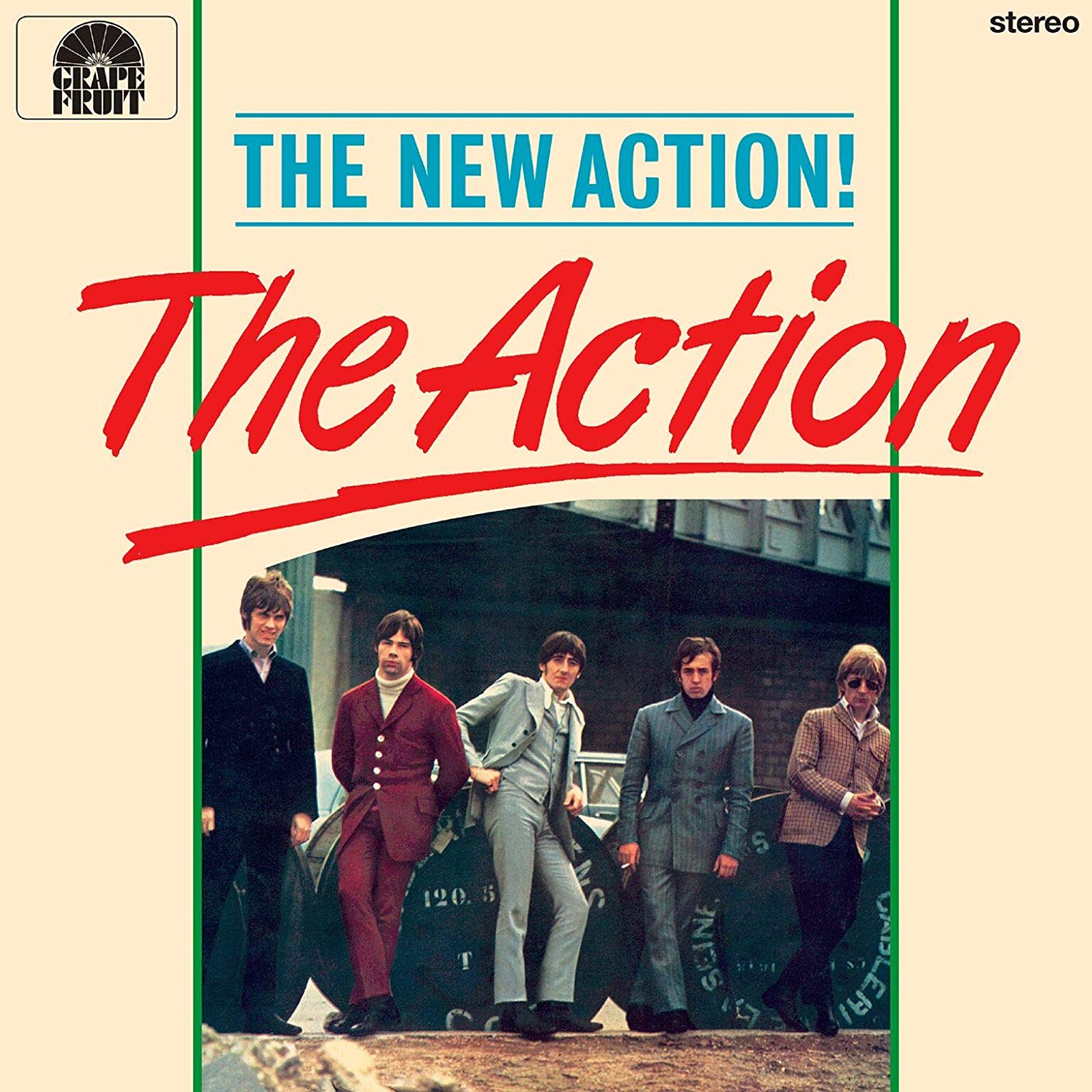
Guide to British Music of the 1960s
Biography | Discography | Web Links | Books

Vocals - Reggie King, rhythm guitar - Alan "Bam" King, bass - Mike Evans, drums - Roger Powell, lead guitar - Pete Watson
The Action was formed in Kentish Town, North London in late 1963. The band first worked as a backing group for Sandra Barry and the Boyfriends, later shortened to Sandra Barry and the Boys. The only single released by this line-up, before Pete Watson joined, was not a big-seller.
The Boys changed their name to The Action in 1965 about the same time that Pete Watson joined as the second guitarist. Much of the Action's live set consisted of their excellent interpretations of Tamla Motown material. Reggie King had a fine white soul voice. Watson's 12-string Rickenbacker guitar gave the band a unique sound. Paul Weller said on his sleeve notes for the 1981-issued The Ultimate Action:
"Alongside Steve Marriott I reckon Reggie King stands as one of the best of the white soul singers, in some ways his rich, smooth voice sounds a lot more natural than Marriott's."
The Action attracted the attention of George Martin, the Beatles' producer. He signed the band to his new AIR Studios. The band's debut as The Action was two soul standards on Parlaphone Records, Land of 1,000 Dances coupled with In My Lonely Room, a Martha and the Vandellas song. This was followed by another Motown cover, the Marvelettes' I'll Keep On Holding On. These two singles showed just how strong the band was at covering Motown material with Reggie King's voice and the band's harmonies being outstanding. The third single Baby You've Got It was backed with the Temptations' Since I Lost My Baby. The Action was one of the hippest acts in town, breaking the attendance record at the Marquee and being dropped from a Who support slot for being "too good".
Two Action originals made up the next single. These were pure pop songs that leaned heavily on the band's vocal harmonies. However, they reflected a change in style away from soul more towards the American West Coast sound. This shift is thought be some people to partly explain the non-appearance of the group's debut album as it may have focused more on the band's earlier style.
The final Action single was the excellent Shadows and Reflections that again showed the band's harmonies at their best. Demos for an album called Brain were recorded although this was never released at the time but is now available as Rolled Gold.
Pete Watson had left the group in 1966 to be replaced by Ian Whiteman who was replaced himself by Martin Stone the following year. Martin Stone remained with the band for a few months before Ian Whiteman rejoined the band. The group then became Azoth, reverting to the Action and then Mighty Baby.
Reggie King made a 1971 album for United Artists featuring Brian Auger, Steve Winwood and Mick Taylor while Alan King played with Ace who had a number one hit in America with How Long.
The Action was a band that never managed to translate its strong live club following into record sales. In many ways they were a much stronger band on the scene than the Who or the Small Faces and had a strong Mod following around the country. Nevertheless, a strong legacy is available today on a number of compilation albums.
In recent years, the band reformed and played a number of gigs with the likes of Liam Gallagher and Robbie Williams queuing for autographs. One of the group's original most faithful fans, Phil Collins, even played drums with the band at the 100 Club, flying over from Geneva for the privilege.
Singer Reg King died of cancer on 8 October 2010. An album of songs by Reggie King called Looking for a Dream was released in 2013. This consists of tracks recorded in 1969 backed by The Action.
In 2014, an EP of three tracks recorded for a Decca audition in May 1965 was released. This contained a version of In My Lonely Room which was arguably better than the EMI version. A fourth track was recorded when the band were known as The Boys.
Towards the end of October 2018, Cherry Red released a vinyl LP of would/could have been The Action's debut album. At the same time, the company issued a four CD boxed set of Action recordings including demos, new stereo mixes and rare tracks.
Making Time Recommendation
